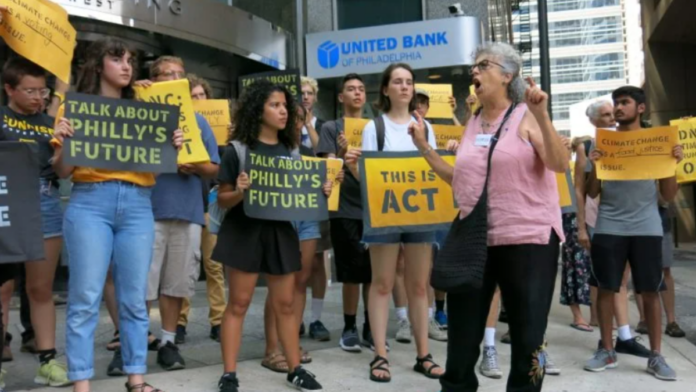Days before the presidential election, reporters say climate change may be a deciding issue among voters across the country. In a webinar on Wednesday, the Society of Environmental Journalists (SEJ) discussed the arc of the 2020 campaign and how they see a shift in the public’s view of environmental issues.
“What I’ve seen for years is broad issues like clean air, clean water–they matter, people talk about how they are important, but there isn’t a sense of urgency,” said Juliet Eilperin, senior national affairs correspondent for the Washington Post. “What we are seeing now when we talk to people is that young people really feel like they are seeing the impacts of climate change in their lives that they will be inheriting a world impacted by climate change.”
For voters that accept climate change is coming and see the need to enact policies to address it, Vice President Joe Biden’s admissions that he would ban fracking and potentially restrict mineral leasing on public lands may not hurt him with the electorate, according to the panel.
Environmental advocates participated in the media event. Among them was Gene Karpinski, president of the League of Conservation Voters, who said, “Frankly [climate action is] the key to Biden winning. Those parts of the coalition that care deeply about climate are the key to him winning.”
Green groups like LCV are betting that the environment, not COVID-19 or the economy, will be the issue that drives voters to the polls next week and delivers the race to Biden, especially as harsher weather events such as hurricanes and wildfires signal the urgency of the problem.
“The average American now sees climate change as a ‘here, now, us’ problem and that’s a game changer,” said Edward Maibach, director of the Center for Climate Change Communication at George Mason University.
The Democratic primaries last fall and into early 2020 showed that the tone of the debate is shifting, said Karpinski, even though he pointed out Biden’s climate platform was not the strongest he had seen.
“This issue is a political winner,” he said. “It’s on the ballot and we are very confident that people on the right side of this issue are on the right side of history.”
Biden has resorted recently to some backtracking his stance on fracking. During a competitive primary, Biden’s position was that of “banning new oil and gas permitting on public lands and waters.” When pressed by President Trump during the most recent debate, Biden replied he “never said I oppose fracking.”
Meanwhile, President Donald Trump’s position has been evolving over the past year and a half, says Rich Powell, executive director of Clear Path, a conservative nonprofit promoting clean energy. Instead of denying climate change, climate advocates on the right are instead discussing the tradeoffs of various policy mechanisms.
Western states are increasingly promoting climate action while also developing their energy resources, a tension that could have unpredictable impacts on the election.
“I think New Mexico is a really interesting state because it has such incredible outdoor recreation. It is a blue state with progressive figures in Congress but you cannot overstate the importance of energy to that state’s economy,” said Eilperin, who pointed out that Interior Secretary David Bernhardt frequently boast of New Mexico’s record-setting lease sale in 2018 and how this provided tens of millions of dollars to the state’s schools.
At the same time, New Mexico Governor Michelle Lujan Grisham has pushed hard for climate action.
“On one level there is a governor who has a climate action plan who is addressing these issues, but there is a reluctance and actual discomfort with Biden’s commitment [to end fracking],” said Eilperin. “That is something that would have a real major impact on that state. That’s more unpredictable than for say Oklahoma.”
If the poll numbers are correct, similar divides are popping up in other shale regions as well. In Pennsylvania, for example, the voters are split over increasing fracking. Though some parts of the state have benefited from the jobs and revenues industry has brought to their area, other regions are more concerned about the impacts of climate change.
“It is a complicated issue that plays out differently across the country,” said Eilperin, who suggested that framing the debate around clean energy solutions might broaden the appeal of policy shifts.
Meaghan Parker, executive director of the SEJ, agreed, telling Western Wire that the topic was “complex” and encouraging reporters to continue to dig into research and polling to deepen their understanding of it.

